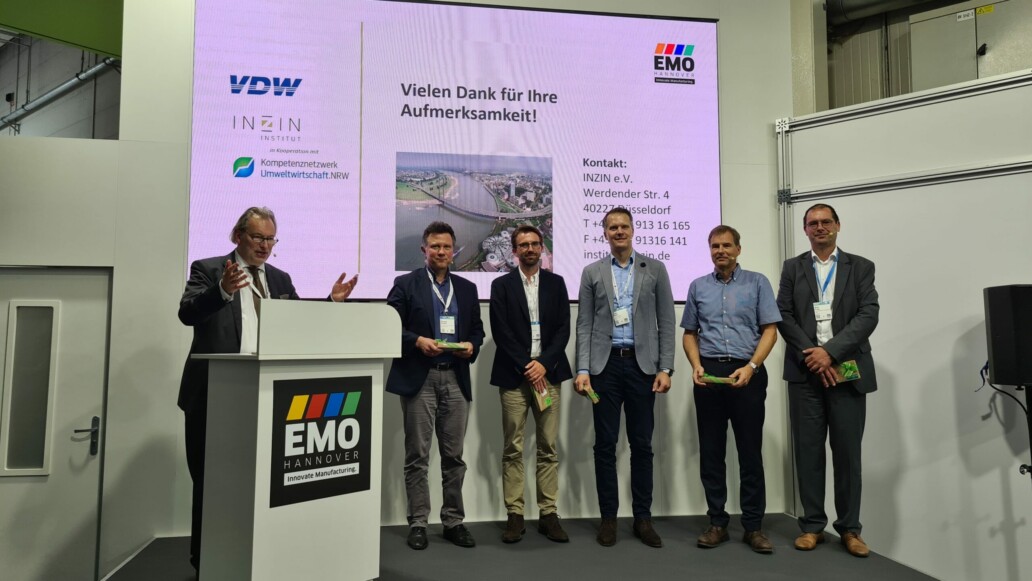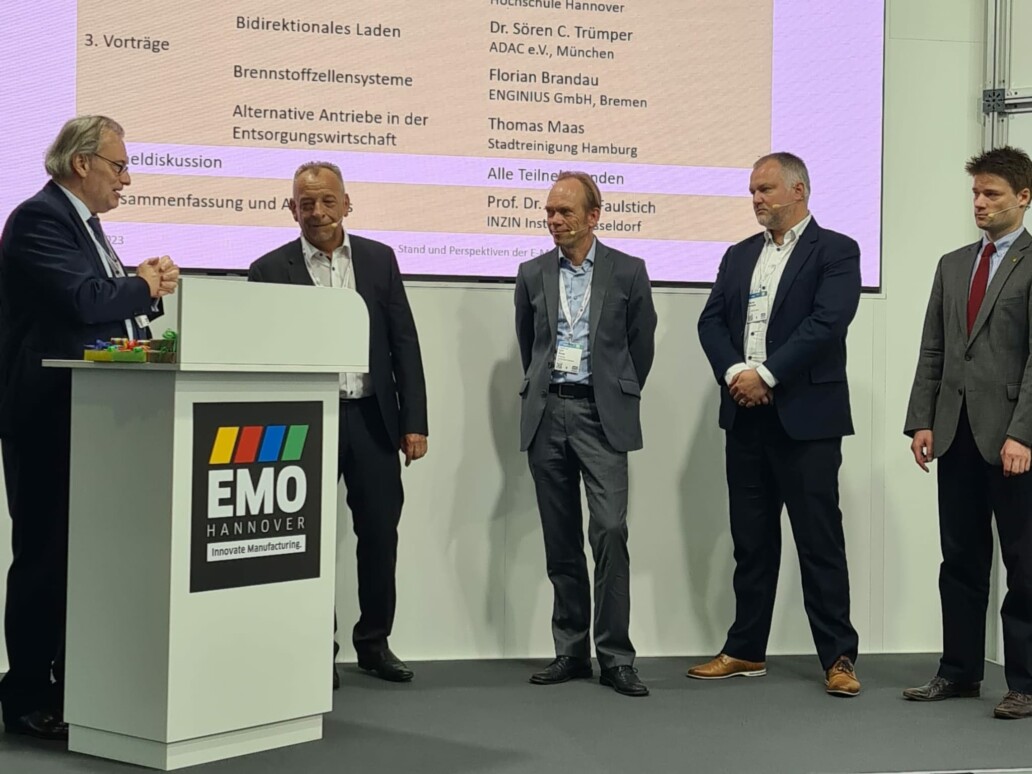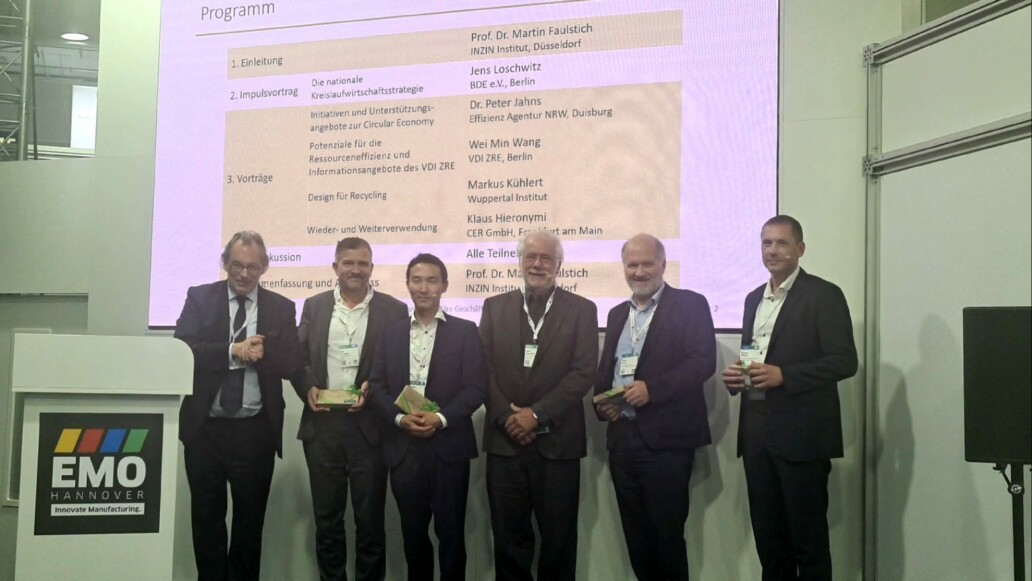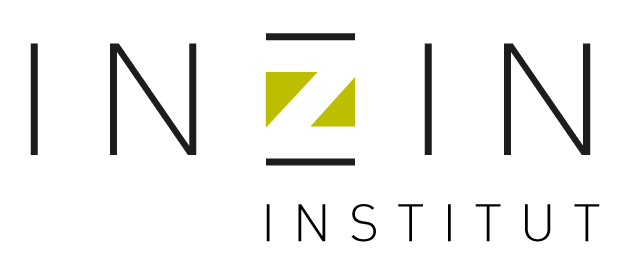Sustainability Forum at EMO Hannover 2023
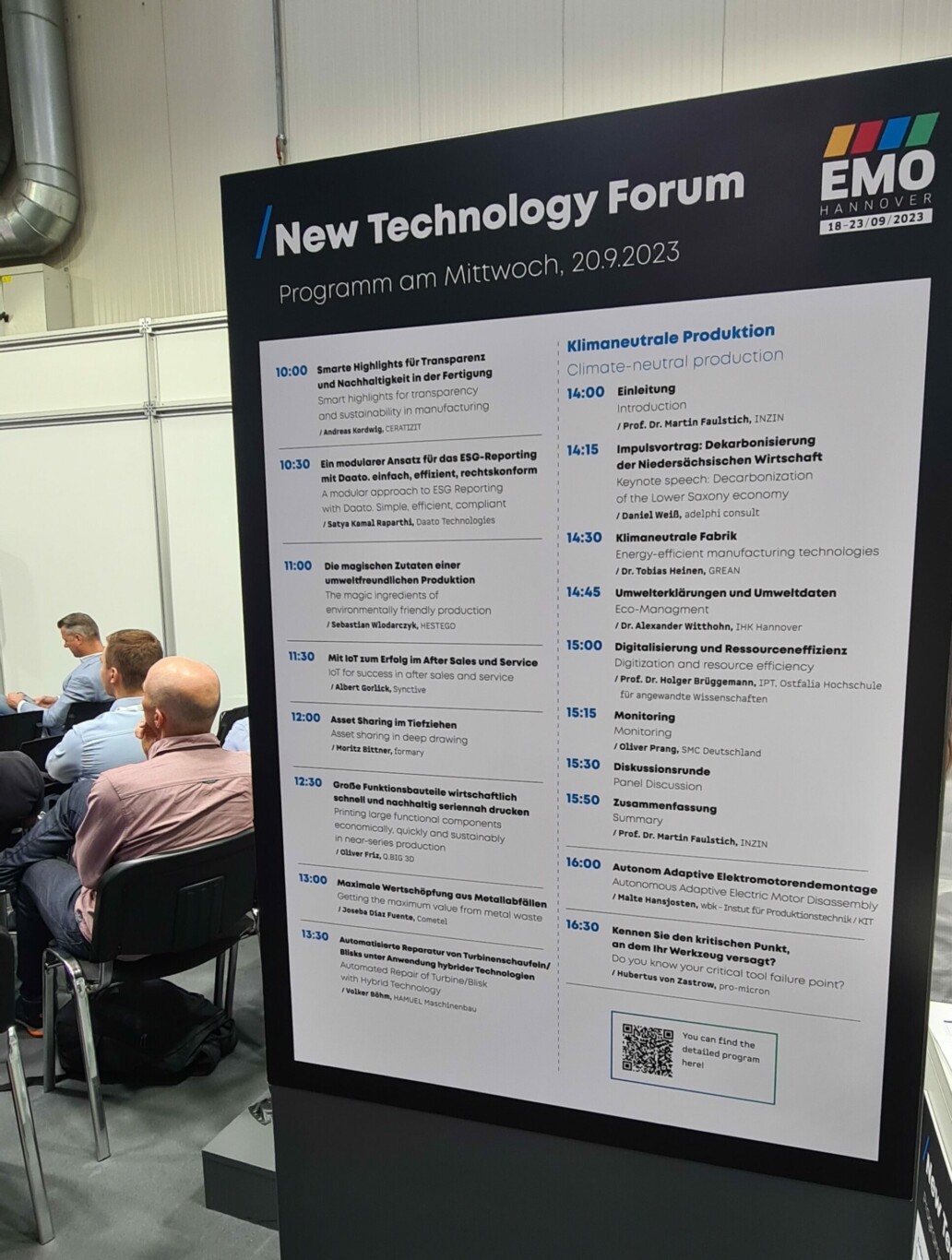
EMO Hannover 2023 is over and we look back on exciting discussions and presentations on the topics of ‘Climate-neutral production’, ‘The status and prospects of e-mobility’ and ‘Circular business models’.
We would like to take this opportunity to thank all participants for their contributions!
Germany is a leading global industrial location. The industrial sector is responsible for one-fifth of Germany’s greenhouse gas emissions. This requires adjustments to production processes as well as product and service systems. In recent decades, German industry has already made great strides in reducing CO2 emissions. The panel discussed how industry can actively shape the transformation towards climate-neutral production through the use of new technologies and on the basis of secure data structures – without losing its strong position on the global market.
Climate-neutral production
In his keynote speech, Daniel Weiß (adelphi consult GmbH) presented the transformation study – Decarbonisation of Lower Saxony’s Economy. In subsequent presentations, Dr Tobias Heinen (GREAN GmbH) discussed climate-neutral factories, Dr Alexander Witthohn (Hanover Chamber of Industry and Commerce) discussed environmental statements and environmental data, Prof. Dr Holger Brüggemann (Ostfalia University of Applied Sciences) discussed digitalisation and resource efficiency, and Oliver Prang (SMC Deutschland GmbH) discussed compressed air savings. In the panel discussion that followed, participants discussed, among other things, the challenges companies face in converting their production, the potential that climate-neutral production offers for the reindustrialisation of urban areas, and what the future of production in Germany will look like in 2050.
Status and prospects of e-mobility
A keynote speech by Martin Duddek (NLStBV) on individual charging infrastructure concepts for the transport transition was followed by presentations by Prof. Dr. Lars-Oliver Gusig (Hanover University of Applied Sciences) on the acceptance of e-mobility, Dr. Sören C. Trümper (ADAC e. V.) on bidirectional charging, Florian Brandau (ENGINIUS GmbH) on fuel cell systems, and Thomas Maas (Stadtreinigung Hamburg) on alternative drive systems in the waste management industry. The subsequent panel discussion addressed topics such as the technical advances that need to be made to make e-mobility even more attractive, how the potential of fuel cells for commercial use is assessed, and what the future vision and development path for mobility looks like up to 2050.
Circular business models
In his keynote speech, Jens Loschwitz (BDE e. V.) presented the national circular economy strategy. This was followed by presentations by Dr Peter Jahns (Effizienz-Agentur NRW), Wei Min Wang (VDI Centre for Resource Efficiency), Markus Kühlert (Wuppertal Institute) and Klaus Hieronymi (Circular Economy Research GmbH) on the potential for resource efficiency and information services offered by the VDI ZRE, design for recycling, and reuse and recycling. In the concluding panel discussion, participants discussed, among other things, how the transformation from a linear to a circular economy can be achieved from the perspective of companies, what best practice examples already exist in industry and how these can be transferred to other sectors and companies.
We would also like to express our sincere thanks for the support provided by
Gerda Kneifel | VDW (Verein Deutscher Werkzeugmaschinenfabriken), Andrea Busch | Deutsche Messe AG, Green Economy Network.NRW
